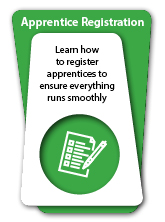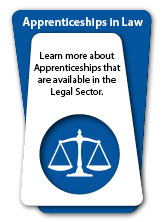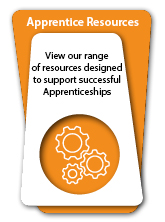Frequently Asked Questions
Legal Apprenticeships – Frequently Asked Questions
Find answers to your questions about Apprenticeships fast:
- What is a Legal Apprenticeship?
- What Apprenticeships in law are available in England?
- What role does CILEX play in the legal Apprenticeships?
- What is an End Point Assessment?
- Who is the End Point Assessment Organisation for Paralegals and Chartered Legal Executives?
- How long does a Paralegal or Chartered Legal Executive Apprenticeship take
- How can my organisation deliver Apprenticeship training for Paralegals or Chartered Legal Executives?
- Do I need CILEX accreditation to train Legal Apprentices?
- What are the requirements for delivering Apprenticeship training for Paralegals or CLEs?
- Do Apprenticeship Training Providers need a contract with End Point Assessment Organisations?
- How are Legal Apprenticeships funded?
- How do employers receive funding for Legal Apprenticeship training?
- How much does an End Point Assessment cost?
- What does the End Point Assessment for the Paralegal Apprenticeship involve?
- Which areas of Law and Practice are currently available for the Paralegal Apprenticeship End Point Assessment?
- What if I need a contextualised assessment for the Paralegal Apprenticeship End Point Assessment which is not available?
- Where can apprentices sit the Paralegal Apprenticeship End Point Assessment?
- What does the End Point Assessment for the Chartered Legal Executive Apprenticeship involve?
- What is the Gateway review?
- When should I register Apprentices for End Point Assessment?
- Why should I register Apprentices for End Point Assessment at the beginning of the Apprenticeship?
- What is the process for reserving and scheduling End Point Assessments?
- Do Apprentices need to be members of CILEX?
- What happens to the old Specification of Apprenticeship Standards for England (SASE) Apprenticeships?
What is a Legal Apprenticeship?
- A Legal Apprenticeship, like any other Apprenticeship, is a job with training. The Apprentice’s job role will cover law and legal practice.
- An Apprenticeship is part of a government incentivised vocational programme to open access to the legal profession.
- Employers recruit Apprentices and offer an Apprenticeship contract, offering work-based and off-the-job training.
What Apprenticeships in law are available in England?
- Apprenticeships range from Level 2 (equivalent to GCSE level) to Level 6/7 (equivalent to degree and masters level).
- The Apprenticeship Standards for which CILEX offers end point assessment in the legal sector are:
- Paralegals (Level 3).
- Chartered Legal Executives (Level 6).
There are a number of older Apprenticeship Frameworks in England that are being gradually withdrawn to new Apprentices. These older Apprenticeships are based on the Specification of Apprenticeship Standards for England (SASE)
What role does CILEX play in the legal Apprenticeships?
CILEx is approved by ESFA on the Register of End Point Assessment Organisations (RoEPAO) to carry out End Point Assessments for the following Apprenticeship Standards:
- Level 3 – Paralegal.
- Level 6 – Chartered Legal Executive.
We also offer a range of qualifications which are linked to law and practice and may form part of an Apprenticeship programme.
What is an End Point Assessment?
All Apprentices need to take an independent End Point Assessment at the end of their Paralegal or Chartered Legal Executive Apprenticeship.
The purpose of End Point Assessments is to:
- Ensure that knowledge, skills and behaviours acquired during the Apprenticeship meet the standards set out for the specific Apprenticeship and occupation.
- Certify competence in the job role.
- Safeguard that standards are consistently applied throughout.
Execution of a Paralegal or Chartered Legal Executive End Point Assessment:
- An End Point Assessment is taken at the end of the Apprenticeship when you are satisfied that the Apprentice is competent in the role.
- End Point Assessments are marked by an independent End Point Assessment Organisation such as CILEX.
- Apprenticeship certificates are only awarded after End Point Assessment is successfully completed and a minimum of a pass is awarded.
- An assessment plan accompanies each standard: the Paralegal Assessment Plan and the Chartered Legal Executive Assessment Plan can be found on the Institute for Apprenticeships website.
Who is the End Point Assessment Organisation for Paralegals and Chartered Legal Executives?
CILEX is the only approved and registered independent End Point Assessment Organisation for Paralegals and Chartered Legal Executives. CILEX is approved and listed on the ESFA Register of End Point Assessment Organisations (RoEPAO).
How long does a Paralegal or Chartered Legal Executive Apprenticeship take?
- Level 3 – Paralegal – The expectation is that this level will take around 24 months.
- Level 6 – Chartered Legal Executive – The expectation is that this level will take around 60 months.
The length of any Apprenticeship will depend on each Apprentice’s prior learning and experience.
To become an approved Apprenticeship Training Provider, organisations are required to be listed on the Education and Skills Funding Agency (ESFA) Register of Apprenticeship Training Providers (RoATP).
An approval process is run by the Education and Skills Funding Agency (ESFA), who check a Training Providers due diligence, capability, quality and financial health to assess capability to deliver high quality Apprenticeship training.
The government provides tailored guidance for different types of providers as well as details of the e-tendering process for Apprenticeship Training Provider approval.
There is no requirement to be accredited to deliver an Apprenticeship programme. However, if you intend to deliver CILEX qualifications as part of an Apprentice’s programme of learning then you will need to apply to become a CILEX Accredited Centre.
If you are interested in becoming a CILEX Accredited Centre, you can email Martin Petch to get advice and support to start your application.
To become an approved Apprenticeship Training Provider, organisations are required to be listed on the Education and Skills Funding Agency (ESFA) Register of Apprenticeship Training Providers (RoATP).
An approval process is run by the Education and Skills Funding Agency (ESFA), who check a Training Providers due diligence, capability, quality and financial health to assess capability to deliver high quality Apprenticeship training.
The government provides tailored guidance for different types of providers as well as details of the e-tendering process for Apprenticeship Training Provider approval.
Do Apprenticeship Training Providers need a contract with End Point Assessment Organisations?
Yes.
Although Employers choose their Approved Training Provider and End Point Assessment Organisation, Training Providers are often asked to handle the day-to-day delivery of the Apprenticeship. Training Providers receive funding for the End Point Assessment (via the Digital Apprenticeship Service for levy paying employers) from which they, in turn, pay for End Point Assessments.
The Education and Skills Funding Agency (ESFA) funding rules are specific: Training Providers must contract with the End Point Assessment Organisation selected by the employer and have a written agreement in place which:
- Allows for payments on behalf of the employer for the End Point Assessment or retakes.
- Sets out arrangements for sharing relevant information about the Apprentice for assessments, potential retakes and certification.
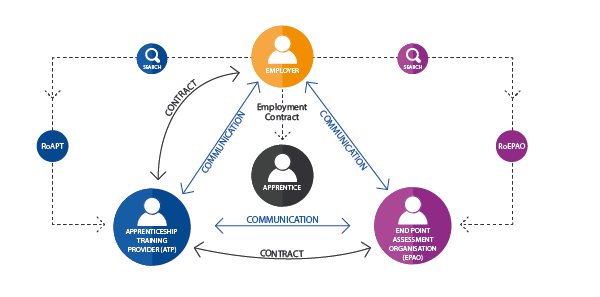
- The contract will set out the agreed commitments of both parties in delivering independently assessed End Point Assessments.
How are Legal Apprenticeships funded?
Large companies (more than £3 million PAYE) pay an Apprenticeship Levy which is put into their Digital Apprenticeship Service account to invest in Apprenticeship Training and End Point Assessments.
- Apprenticeship Training Providers are paid via the Digital Apprenticeship Service for both training and assessments.
- Government co-funds Apprenticeship training and certification, with a 10 per cent top-up for levy paying companies.
- Training Providers are paid directly by employers and by government via Individual Learning Records (ILR).
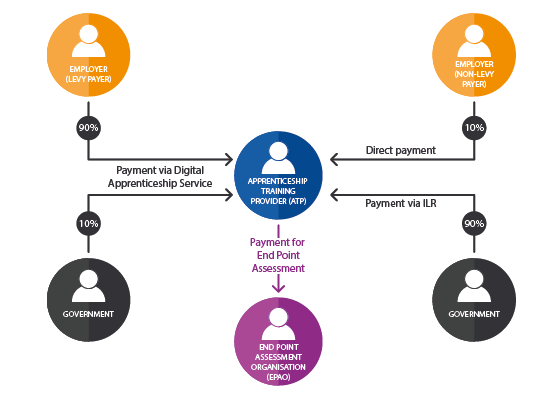
How do employers receive funding for Legal Apprenticeship training?
Apprenticeship Levy payments for companies with a wage bill over £3 million:
Apprenticeship Training Providers working with levy paying businesses will receive payment via the Apprenticeship Service according to their agreed terms.
From 1 May 2017, employers with a payroll of over £3 million are required to pay a levy of 0.5 per cent of payroll, over this amount. The levy is paid via PAYE into their Digital Apprenticeships Service account.
The employer’s Digital Apprentice Service account is used to pay for:
- Apprenticeship training with an approved Apprenticeship Training Provider (ATP).
- The independent End Point Assessment and certification at the end of each Apprenticeship programme.
The Government will add a 10 percent top-up for any spending that the employer makes from their Digital Apprenticeship Service account*. So, if an employer uses funds from their digital account to pay for a Paralegal Apprenticeship at £8000, an additional £800 will be added to their account.
Apprenticeship funding for companies with a wage bill under £3 million
Small to medium companies with a wage bill under £3 million will not pay an Apprenticeship Levy.
- Apprenticeship funding will be paid directly to Apprenticeship Training Providers by the Education and Skills Funding Agency.
- SME employers are expected to invest 5 per cent of the cost of the Apprenticeship and pay this to the Apprenticeship Training Provider.
- Government co-invests 95 per cent of the funding directly to the Apprenticeship Training Provider*.
Example: If an employer agrees a fee of £8000 for a Paralegal Apprenticeship, they must pay £800 (or 10%) to the Training Provider. The remaining £7,200 is paid by the Government.
* Additional incentive payments are available for Government priority demographics.
How much does an End Point Assessment cost?
A registration fee will be payable at the start of the Apprenticeship to register Apprentices. A second EPA fee will then be payable to reserve dates for an Apprentice’s End Point Assessment.
Paralegal Apprentices who join as members of CILEX will receive a discount on the standard fee for End Point Assessment.
For more information you can contact our team on 01234 845727 or [email protected].
What does the End Point Assessment for the Paralegal Apprenticeship involve?
The Paralegal Apprenticeship End Point Assessment consists of two parts:
-
One portfolio based interview: The apprentice will complete a portfolio evidencing competence on-the-job. They will discuss their evidence portfolio with a CILEX Assessor during an interview.
-
Two timed assessments: These are contextualised scenario-based, invigilated assessments which are set by CILEX.
- The employer decides when the Apprentice is ready to be entered for End Point Assessment.
- End Point Assessments are synoptic and assess the application of knowledge related to the occupation and specialism, as well as skills such as problem solving and drafting
- Parlegal End Point Assessments are marked and graded by CILEX.
Which areas of Law and Practice are currently available for the Paralegal Apprenticeship End Point Assessment?
We currently have the following pathways available for the Paralegal Apprenticeship End-Point Assessment:
• Contract & Civil Litigation
• Employment Law & Practice
• Land Law & Conveyancing
• Private Client & Wills and Succession
• Tort & Civil Litigation
• Family Law & Practice
• Contract & Commercial
What if I need a contextualised assessment for the Paralegal Apprenticeship End Point Assessment which is not available?
Once we have been notified of the chosen area of Law and Practice on the Apprenticeship Registration Form, we will contact Training Providers of the status of any contextualised assessments that will need to be created.
The creation of contextualised assessments for additional pathways are subject to 12 months’ notice and may incur extra costs
Where can apprentices sit the Paralegal Apprenticeship End Point Assessment?
Both the Timed Assessments and the Interview are conducted remotely. To ensure smooth delivery of the assessments the EPA is held at a BTL Test Centre. BTL are the creators of the digital assessment platform “Surpass”, which is used for the Timed Assessments and have a network of test centres in the UK where apprentices sit their EPA.
What does the End Point Assessment for the Chartered Legal Executive Apprenticeship involve?
The Chartered Legal Executive Apprenticeship End Point Assessment consists of two parts:1. A Portfolio: evidencing the knowledge, skills and competences expected of a CILEX Fellow. Based on case load throughout the Apprenticeship and submitted no earlier than the last 6 months of the Apprenticeship
2. A Case Study: a case from the Apprentice’s case load which they have worked on from start to finish.
- The Assessments are designed around the Chartered Legal Executive Apprenticeship Standard, including legal knowledge and skills such as providing appropriate advice, acting on behalf of clients to reach a solution as well as acting ethically within a code of conduct.
- The employer decides when the Apprentice is ready to be entered for End Point Assessment.
- End Point Assessments are synoptic and assess the application of knowledge related to the occupation and specialism and skills required of a Chartered Legal Executive.
- End Point Assessments are marked by CILEX.
What is the Gateway review?
Before an Apprentice can undertake an End Point Assessment, they must have met the Gateway requirements through a Gateway Review. This review is your responsibility, supported by your chosen Training Provider. CILEX will check that the Gateway Review has been carried out to ensure the apprentices may proceed with the End Point Assessment.
As part of the Gateway Review, you should check that the Apprentice:
- is in your view competent in the role and therefore ready to do the End Point Assessment
- has achieved eligible English and maths qualifications at the appropriate level (unless the Apprentice has an exemption)
- has achieved mandatory qualifications (where applicable)
When should I register Apprentices for End Point Assessment?
Once you have agreed with your Training Provider their responsibility for Apprenticeship training, the Apprentices should be registered. To do this you should ask your Training Provider to register Apprentices using the End Point Assessment Registration form.
Why should I register Apprentices for End Point Assessment at the beginning of the Apprenticeship?
End Point Assessments are tailored to the role in which the Apprentice works. CILEX as an EPAO has to ensure that it can meet the demand for EPAs in a reasonable timeframe. To meet the variety of specific needs, CILEX requires registration of all Apprentices at the start of the Apprenticeship. This allows us to help you to ensure that Apprenticeships are completed on schedule.
What is the process for reserving and scheduling End Point Assessments?
Provided you have registered your Apprentices at the beginning of their programme, CILEX will contact you approximately 4 months before the anticipated EPA date to confirm that your Apprentices are on track and to finalise EPA arrangements. It is at this point that we will require payment of the EPA Fee.
We provide a diagram of the process for registering Apprentice’s for End Point Assessments right though to reservation, scheduling and execution in our End Point Assessment Employer Guide, which you can download to the right of this page.
Do Apprentices need to be members of CILEX?
For the Paralegal Apprenticeship, CILEX membership is not mandatory. Membership offers a range of benefits and support for individuals, so it is definitely worth considering. To find out more see Member Benefits.
Where Apprentices are undertaking CILEX qualifications or units as part of their Paralegal Apprenticeship they must be members of CILEX.
For the Chartered Legal Executive Apprenticeship, learners are required to be members of CILEX and are subject to regulation and the CILEX Code of Conduct. Members are eligible to access a wide range of membership benefits. This requirement is set out in the Assessment Plan for the Chartered Legal Executive Apprenticeship.
To discuss the options for your apprentices to become CILEX members contact our team:
Phone: +44 (0)1234 845727
Email: [email protected]
What happens to the old Specification of Apprenticeship Standards for England (SASE) Apprenticeships?
- The previous Apprenticeships frameworks in England (Legal Services Level 3 and 4) will be phased out. Apprentices starting under the older Apprenticeship frameworks (which were developed in line with the Specification of Apprenticeship Standards for England (SASE) will be able to progress through to completion.
- Apprenticeships in Wales, Scotland and Northern Ireland have their own frameworks and standards as Apprenticeship policies are devolved.
|
Phasing out of Previous Apprenticeship Standards in England |
|
|
Legal Services Level 3 (SASE) |
Framework is due to be phased out
|
|
Legal Services Level 4 (SASE) |
Framework is being phased out
|
Please click the images below to find out more about apprenticeships.
Not a Training Provider? Click below to be taken to the information most relevant to you.

